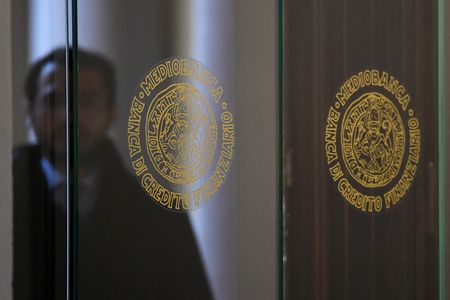By Guillermo Martinez and Violeta Santos Moura
MADRID (Reuters) – Former Spanish soccer federation boss Luis Rubiales’ unsolicited kiss killed Jenni Hermoso’s joy at winning the women’s World Cup in 2023 and she was overwhelmed, crying and exhausted in the following hours and days, three of her teammates told the High Court on Thursday.
The 2021 and 2022 Ballon D’Or winner Alexia Putellas, Barcelona skipper Irene Paredes and Arsenal defender Laia Codina were testifying in the fourth session of a trial over a kiss that triggered a national backlash against sexism in sport.
Rubiales, 47, is accused of sexual assault and then attempting to coerce Hermoso – with the help of three other former soccer federation officials – into publicly saying the kiss on the lips at the 2023 World Cup awards ceremony in Australia had been consensual.
Paredes said she was the first in the team to realise it was a very serious matter and not something to joke about while riding the bus to Sydney Airport after the final.
She also recalled how, in the locker room, Hermoso asked her teammates what they thought about the incident.
“Jenni was worried, she was upset. I saw her cry as she told us this, because it was an issue that was weighing on her and what she wanted was to celebrate the triumph we had just achieved,” Paredes said.
Fellow Barcelona player Putellas said Hermoso was shocked at first, but then on the flight back to Spain and during a celebration trip to the island of Ibiza she became angry, overwhelmed and cried.
“On the plane she was already very overwhelmed and telling us that they wouldn’t leave her alone, they wouldn’t stop,” she said.
Putellas said she saw Hermoso crying from exhaustion in the plane and in Ibiza and that Hermoso had even wondered if she should leave the trip.
Judge Jose Manuel Fernandez-Prieto said if the trial keeps going according to schedule, Rubiales and the other three defendants will take the stand on February 11 to wrap it up on February 12.
(Additional reporting and writing by Emma Pinedo; Editing by Hugh Lawson)













